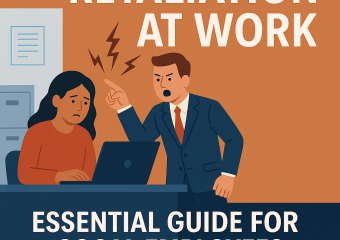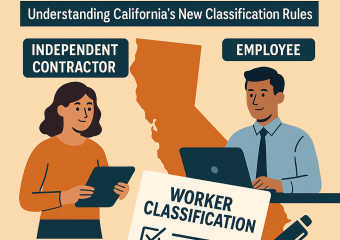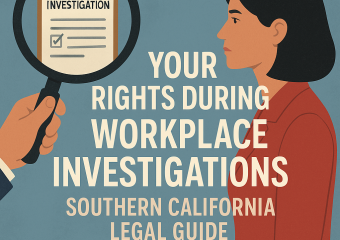Workplace Retaliation in Los Angeles: What Employees Need to Know in 2025
Introduction to Workplace Retaliation
Workplace retaliation remains a pressing concern for numerous employees across various industries in Los Angeles. As we venture further into 2025, the legal landscape continues to evolve, making it increasingly important for workers to stay informed about their rights and the proactive measures they can take to protect themselves. This article delves deep into the subject of workplace retaliation, outlining essential information and advice for Los Angeles employees.
Understanding Workplace Retaliation
At its core, workplace retaliation refers to any adverse action that an employer takes against an employee as a reaction to that employee engaging in legally protected activities. These activities may include filing a complaint about workplace discrimination or harassment, participating in an investigation, or whistleblowing on illegal practices. Retaliation can manifest in various forms, such as demotion, dismissal, salary reduction, job or shift reassignment, decreased job duties, or even subtler forms of mistreatment like exclusion or hostility from peers or supervisors.
Los Angeles Laws Against Workplace Retaliation
In Los Angeles, employees are protected under both California state law and federal law from retaliation by employers. The California Fair Employment and Housing Act (FEHA) and the federal Civil Rights Act are two critical statutes that offer robust protections. These laws ensure that employees can engage in protected activities without fear of unfair treatment at work.
Moreover, in recent updates, Los Angeles has strengthened these protections to accommodate an increasingly diverse workforce, reflecting broader societal shifts towards greater workplace equality and justice. Employees in Los Angeles should familiarize themselves with these legal provisions as part of their rights awareness.
Identifying Signs of Workplace Retaliation
Recognizing the signs of workplace retaliation can sometimes be challenging. It’s crucial for employees to note any changes in their working conditions that coincide with their involvement in protected activities. Some signs might be obvious, like a sudden poor performance review from a previously supportive manager right after filing a complaint. Others might be more subtle, like being left out of meetings or discussions to which you would normally be privy.
Documentation is vital in these situations. Keeping detailed records of interactions, changes in employment terms, work evaluations, and any communications involving supervisors or HR can be invaluable. Not only does this help in establishing a pattern should you need to take legal action, but it also provides a clear narrative of your experience should you need to discuss it with a lawyer.
Steps to Take if You Suspect Retaliation
If you suspect that you’re a victim of workplace retaliation, there are several steps you can take. First, review your company’s anti-retaliation policies and the reporting procedures outlined in your employee handbook. It’s beneficial to follow these procedures when filing your complaint to protect yourself further and strengthen your case.
Consulting with a lawyer specializing in employment law can provide crucial guidance and ensure that your rights are protected throughout the process. Legal experts familiar with Los Angeles employment laws can offer specific advice and help you navigate the complex landscape of filing a complaint or lawsuit if necessary.
Preventative Measures Against Retalization
Creating a workplace culture that discourages retaliation is essential for employers. Training programs that educate managers and employees about retaliation and its consequences can help prevent these behaviors. Encouraging open communication and supporting a transparent grievance resolution process will also minimize misunderstandings and conflicts that could potentially lead to retaliatory actions.
Conclusion
In the dynamic work environment of Los Angeles, understanding workplace retaliation is more crucial than ever. As we continue through 2025, staying informed about your rights and knowing the proper steps to take if faced with retaliation can make a significant difference in maintaining a fair and respectful workplace. Remember, protecting your rights is not just beneficial for you but contributes to an overall healthier, more equitable work culture for everyone.




